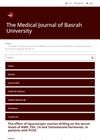 December 2015 in “Kosin Medical Journal”
December 2015 in “Kosin Medical Journal” PCOS treatment should address both symptoms and metabolic risks, starting with lifestyle changes and possibly including medication.
 August 2015 in “Evidence Based Women Health Journal (Online)”
August 2015 in “Evidence Based Women Health Journal (Online)” Inositol was more effective than Metformin in treating symptoms of PCOS in women.
 July 2015 in “Cambridge University Press eBooks”
July 2015 in “Cambridge University Press eBooks” The document concludes that careful history and physical exams are crucial for accurately diagnosing polycystic ovary syndrome and distinguishing it from other similar conditions.
 May 2015 in “Evidence Based Women Health Journal (Online)”
May 2015 in “Evidence Based Women Health Journal (Online)” Inositol was more effective than metformin in improving menstrual cycles and pregnancy rates in PCOS patients.
 April 2015 in “Andrology”
April 2015 in “Andrology” HNG may help prevent the negative effects of chemotherapy on sperm production and white blood cell counts.
 November 2013 in “John Wiley & Sons, Ltd eBooks”
November 2013 in “John Wiley & Sons, Ltd eBooks” The document concludes that accurate diagnosis of male and female gonadal disorders is crucial for effective treatment and better patient outcomes.

Metformin is safe in early pregnancy for women with PCOS and may reduce certain risks.
 May 2010 in “Current Women's Health Reviews”
May 2010 in “Current Women's Health Reviews” The document concludes that early diagnosis and treatment of PCOS in teenagers is important for managing symptoms and preventing long-term health problems.
 September 2002 in “Comprehensive Therapy”
September 2002 in “Comprehensive Therapy” Primary care is key in managing PCOS, focusing on lifestyle changes and medications like birth control and metformin.
 May 2023 in “Research Square (Research Square)”
May 2023 in “Research Square (Research Square)” Agaricus subrufescens extract improved ovarian function and normalized various health markers in rats with PCOS.
44 citations,
September 2020 in “International Journal of Molecular Sciences” New treatments are needed for PCOS that target its genetic, hormonal, and metabolic causes.
7 citations,
April 2008 in “Annals of pharmacotherapy/The annals of pharmacotherapy” Acarbose may improve PCOS symptoms and fertility, but more research is needed.
 July 2023 in “International Journal of Endocrinology”
July 2023 in “International Journal of Endocrinology” Centratherum anthelminticum seed extract effectively treats Polycystic Ovary Syndrome in rats.
 June 2019 in “The Medical journal of Basrah University”
June 2019 in “The Medical journal of Basrah University” Laparoscopic ovarian drilling helps infertile women with PCOS by improving menstrual regularity, ovulation, and chances of conception, and by changing hormone levels.
January 2008 in “Humana Press eBooks” Women with PCOS have higher risks of heart disease, type 2 diabetes, and endometrial cancer.
317 citations,
April 2018 in “Journal of steroid biochemistry and molecular biology/The Journal of steroid biochemistry and molecular biology” PCOS is a complex condition in women that can lead to health issues, and lifestyle changes are the best management approach.
89 citations,
March 2001 in “Endocrine practice” The guidelines help doctors diagnose and treat hormone-related disorders in women.
 68 citations,
January 2022 in “International Journal of Molecular Sciences”
68 citations,
January 2022 in “International Journal of Molecular Sciences” PCOS management includes lifestyle changes and medications, with ongoing research into repurposed drugs for better treatment options.
 45 citations,
November 2021 in “Fertility and Sterility”
45 citations,
November 2021 in “Fertility and Sterility” The conclusion is that women under 35 should start fertility checks after 12 months of trying to conceive, women over 35 after 6 months, and women over 40 should start immediately. The checks should include ovulation status, reproductive tract structure, and male partner's semen evaluation.
 37 citations,
October 2021 in “Nutrients”
37 citations,
October 2021 in “Nutrients” Vitamin D might help regulate insulin in the body, but taking Vitamin D supplements doesn't clearly prevent or improve type 2 diabetes. More research is needed.
 36 citations,
October 2021 in “Frontiers in Endocrinology”
36 citations,
October 2021 in “Frontiers in Endocrinology” Insulin resistance and high male hormone levels are major causes of Polycystic Ovary Syndrome.
 19 citations,
March 2022 in “International Journal of Environmental Research and Public Health”
19 citations,
March 2022 in “International Journal of Environmental Research and Public Health” Certain brain hormones and chemicals are linked to the development of Polycystic Ovary Syndrome.
8 citations,
September 2005 in “Practical diabetes” PCOS is a condition causing irregular periods, excess male hormones, and infertility, often managed by targeting insulin resistance and specific symptoms.
6 citations,
September 2023 in “International journal of molecular sciences” Oxidative stress worsens PCOS by damaging cells and disrupting metabolism, suggesting antioxidant treatments might help.
 6 citations,
August 2023 in “Fertility and Sterility”
6 citations,
August 2023 in “Fertility and Sterility” The 2023 guideline for PCOS suggests using updated diagnostic criteria, assessing related health risks, and recommends lifestyle changes and specific treatments for symptoms and fertility issues.
 6 citations,
August 2023 in “European journal of endocrinology”
6 citations,
August 2023 in “European journal of endocrinology” The 2023 guideline advises a detailed approach for PCOS, focusing on early detection, lifestyle and medical treatments, and managing health risks.
 4 citations,
December 2022 in “Frontiers in Endocrinology”
4 citations,
December 2022 in “Frontiers in Endocrinology” Treating non-classic congenital adrenal hyperplasia is complex because the benefits of hormone treatment must be weighed against potential health risks.
 4 citations,
August 2021 in “Clinical and Experimental Reproductive Medicine”
4 citations,
August 2021 in “Clinical and Experimental Reproductive Medicine” The 2018 guideline for PCOS suggests new diagnostic criteria and treatments, but recognizes the need for more research.
 3 citations,
May 2023 in “Biomedicines”
3 citations,
May 2023 in “Biomedicines” PCOS causes infertility mainly due to hormonal imbalances, insulin resistance, and chronic inflammation.
3 citations,
May 2021 in “PloS one” Many men misuse oral contraceptive pills for things like hair growth and muscle gain.






















